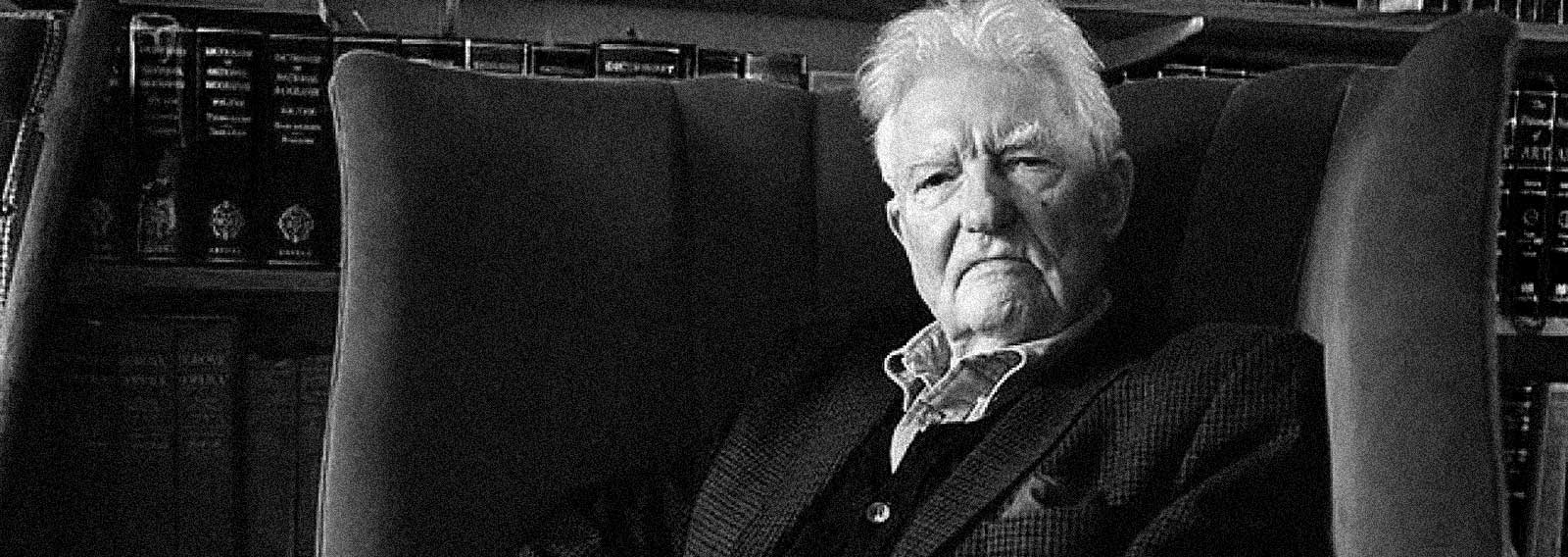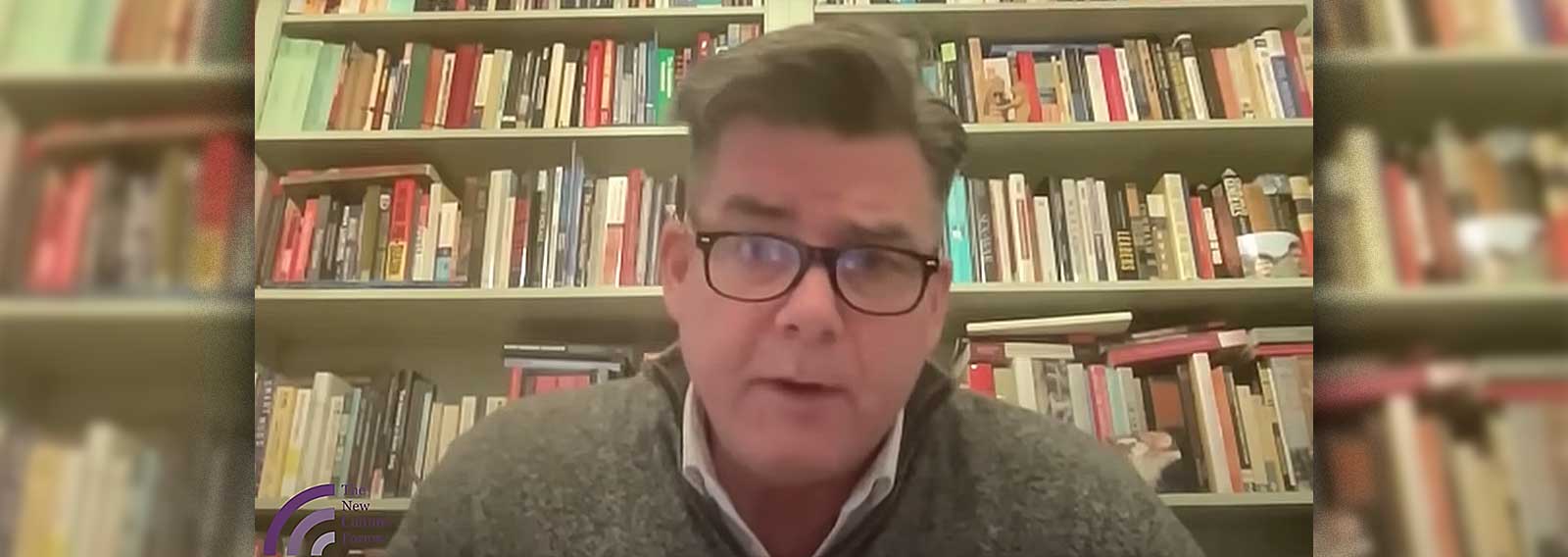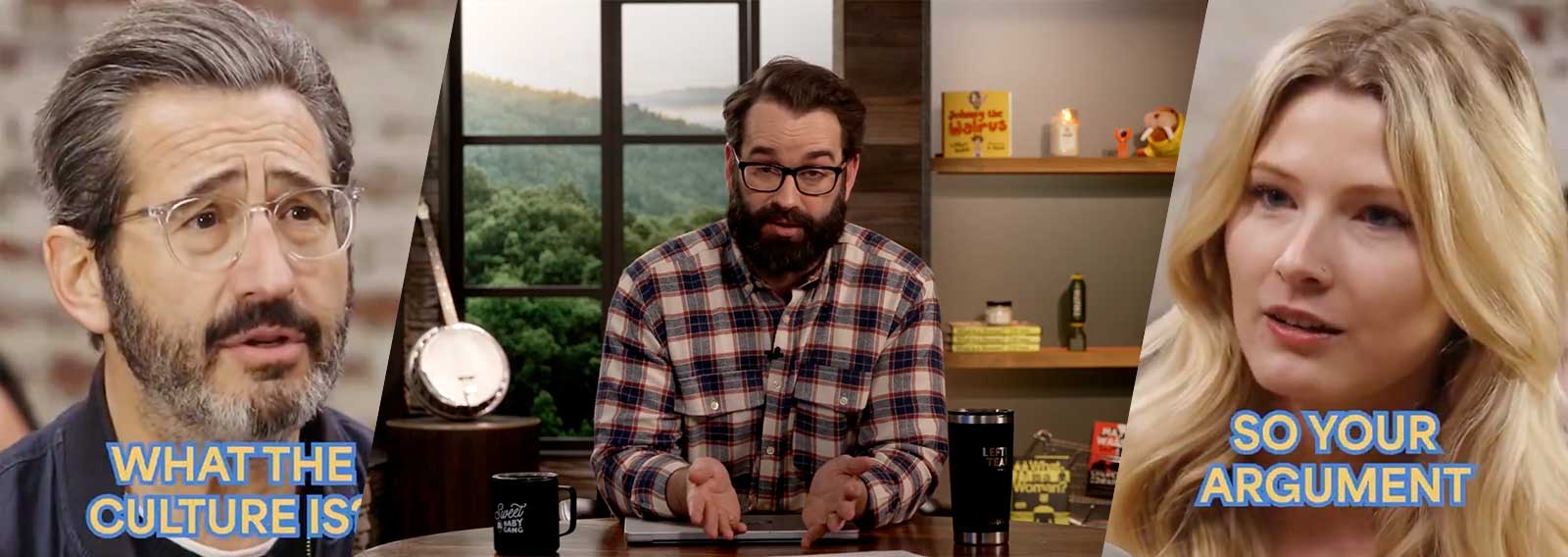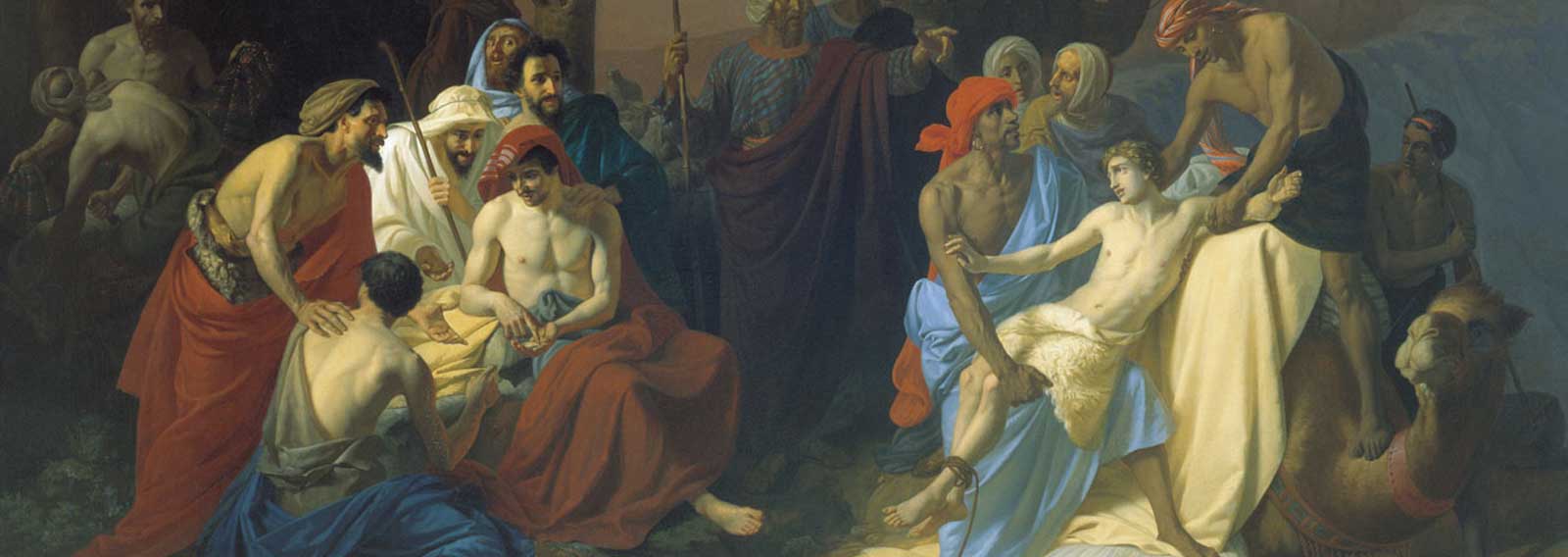The noted English historian Paul Johnson passed away a few days ago, aged 94. Already various articles have appeared discussing the man and his work, so I will not offer a proper obituary here. Instead, I will mainly look at some of his important books which I happen to have to give those of you not familiar with the man a flavour of his thought.
But very briefly, the writer was raised in a Catholic home, attended Oxford, served in the army, and then spent the bulk of his career as a journalist and historian. He moved away from his earlier political leftism to become a well-known conservative author, including being a speechwriter for Margaret Thatcher.
One point that might need to be raised here to keep this from becoming a hagiography: Christians and conservatives such as myself were saddened to learn in the 1990s that he had had an affair. Yes, we all fail in many ways, but to stand up for Christian and conservative values should be seen as much in our lives as in our words.
But let me press on. He certainly was prolific. He penned more than fifty books, with a number of them being over a thousand pages in length. I must confess to having only ten of them. Let me list those volumes alphabetically, and offer a short quote from each one – often coming from the introduction or conclusion of the book.
The Birth of the Modern: World Society 1815-1830 (1991)
“The French Revolution had opened an era of intense politicization. Perhaps the most significant characteristic of the dawning modern world, and in this respect it was a true child of Rousseau, was the tendency to relate everything to politics. In Latin America, every would-be plunderer or ambitious bandit now called himself ‘a liberator’; murderers killed for freedom, thieves stole for the people. In Spain, during the 1820s, believers and nonbelievers, those who liked kings and those who hated them, began to regard their faith, or lack of it, as a justification for forming private armies which defied the lawful authorities. Organized crime now took a party label and put forward a program and thereby became better organized and a more formidable threat to society. Thus violence acquired moral standing and the public was terrorized for its own good.” pp. 661-662
Churchill (2009)
“In his ninety years, Churchill had spent fifty-five years as a member of Parliament, thirty-one years as a minister, and nearly nine years as prime minister. He had been present at or fought in fifteen battles, and had been awarded fourteen campaign medals, some with multiple clasps. He had been a prominent figure in the First World War, and a dominant one in the Second. He had published nearly 10 million words, more than most professional writers in their lifetime, and painted over five hundred canvases, more than most professional painters. He had reconstructed a stately home and created a splendid garden with its three lakes, which he had caused to be dug himself. He had built a cottage and a garden wall. He was a fellow of the Royal Society, an Elder Brother of Trinity House…. He had a large and much-loved family, and countless friends. So Winston Churchill led a full life, and few people are ever likely to equal it-its amplitude, variety and success on so many fronts.” pp. 161-162
Enemies of Society (1977)
“When the claims of freedom conflict with the pursuit of other desirable objects of public policy, freedom should normally prevail; a community should have a rational and an emotional disposition in its favour. In our times, liberty’s chief conflict has been with equality. But absolute equality is not a good at all; it is a chimera, and if it existed would prove as fearful and destructive a monster as that grotesque creature Bellerophon killed. And the unregarding and indiscriminate pursuit of relative equality, itself desirable, has led to many unwarranted restrictions on human freedom without attaining its object. In short, the bias has been in the wrong direction, and it is now necessary to strike a new balance of moral good by redressing it. Where there is genuine doubt between the legitimate claims of liberty and equality, the decision taken should be the one most easily reversed if it proves mistaken.” pp. 258-259
Heroes (2007)
“Three people won the Cold War, dismantled the Soviet empire and eliminated Communism as a malevolent world force: Pope John Paul II, Margaret Thatcher and Ronald Reagan. They worked in unofficial concert and we shall perhaps never know which of the three was the most important. John Paul effectively undermined the Evil Empire (Reagan’s phrase) in its weakest link, Poland, where the process of disintegration began. Margaret Thatcher reinvigorated the capitalist system by starting a worldwide movement to reduce the public sector by a new term, ‘privatization’ and by destroying militant trade unionism. Reagan gave back to the United States the self-confidence it had lost, and at the same time tested Soviet power to destruction. All were heroes, each in a different way.” p. 253
A History of the American People (1997)
“The creation of the United States of America is the greatest of all human adventures. No other national story has such tremendous lessons, for the American people and for the rest of mankind. . . . We must never forget that the settlement of what what is now the United States was only part of a larger enterprise. And this was the work of the best and the brightest of the entire European continent. They were greedy. As Christopher Columbus said, men crossed the Atlantic primarily in search of gold. But they were also idealists. These adventurous young men thought they could transform the world for the better. Europe was too small for them—for their energies, their ambitions, and their visions. In the 11th, 12th, and 13th centuries, they had gone east, seeking to reChristianize the Holy Land and its surroundings, and also to acquire land there. The mixture of religious zeal, personal ambition—not to say cupidity—and lust for adventure which inspired generations of Crusaders was the prototype for the enterprise of the Americas.” pp. 3-4
A History of Christianity (1976)
“[Christianity’s] strength lies in its just estimate of man as a fallible creature with immortal longings. Its outstanding moral merit is to invest the individual with a conscience, and bid him follow it. This particular form of liberation is what St Paul meant by the freedom men find in Christ. And, of course, it is the father of all other freedoms. For conscience is the enemy of tyranny and the compulsory society; and it is the Christian conscience which has destroyed the institutional tyrannies Christianity itself has created – the self-correcting mechanism at work. The notions of political and economic freedom both spring from the workings of the Christian conscience as a historical force; and it is thus no accident that all the implantations of freedom throughout the world have ultimately a Christian origin.” p. 516
A History of the Jews (1987)
“One way of summing up 4000 years of Jewish history is to ask ourselves what would have happened to the human race if Abraham had not been a man of great sagacity, or if he had stayed in Ur and kept his higher notions to himself, and no specific Jewish people had come into being. Certainly, the world without the Jews would have been a radically different place. Humanity might eventually have stumbled upon all the Jewish insights. But we cannot be sure. All the great conceptual discoveries of the intellect seem obvious and inescapable once they have been revealed, but it requires a special genius to formulate them for the first time. The Jews had this gift. To them we owe the idea of equality before the law, both divine and human; of the sanctity of life and the dignity of the human person; of the individual conscience and so of personal redemption; of the collective conscience and so of social responsibility; of peace as an abstract ideal and love as the foundation of justice, and many other items which constitute the basic moral furniture of the human mind. Without the Jews it might have been a much emptier place.” p. 585
Intellectuals (1988)
“I think I detect today a certain public skepticism when intellectuals stand up to preach to us, a growing tendency among ordinary people to dispute the right of academics, writers and philosophers, eminent though they may be, to tell us how to behave and conduct our affairs. The belief seems to be spreading that intellectuals are no wiser as mentors, or worthier as exemplars, than the witch doctors or priests of old. I share that skepticism. A dozen people picked at random on the street are at least as likely to offer sensible views on moral and political matters as a cross-section of the intelligentsia. . . . Above all, we must at all times remember what intellectuals habitually forget: that people matter more than concepts and must come first. The worst of all despotisms is the heartless tyranny of ideas.” p. 342
Modern Times: The World from the Twenties to the Eighties (1983)
“Disillusionment with socialism and other forms of collectivism was only one aspect of a much wider loss of faith in the state as an agency of benevolence. The state was the great gainer of the twentieth century; and the central failure. Up to 1914, it was rare for the public sector to embrace more than 10 percent of the economy. By the 1970s, even in liberal countries, the state took up to 45 percent of the GNP. But whereas, at the time of the Versailles Treaty, most intelligent people believed that an enlarged state could increase the sum total of human happiness, by the 1980s, the view was held by no one outside a small, diminishing, and dispirited band of zealots. The experiment had been tried in innumerable ways, and it had failed in nearly all of them. The state had proven itself to be an insatiable spender, an unrivaled waster. Indeed, in the twentieth century, it had proven itself the great killer of all time. By the 1980s, state action had been responsible for the violent or unnatural deaths of over 100 million people—more perhaps than it had hitherto succeeded in destroying during the whole of human history up to 1900. Its inhuman malevolence had more than kept pace with its growing size and expanding means.” p. 729
The Quest For God (1996)
“It is undeniable that the two greatest institutional tyrannies of the century – indeed, of all time – the Nazi Reich and the Soviet Union, were Godless constructs: modern paganism in the first case and openly proclaimed atheist materialism in the second. The death-camps and the slave-camps were products not of God but of anti-God. Hitler was born and brought up a Roman Catholic and Stalin was once a Russian Orthodox apprentice-monk, but it is hard to imagine any two men in history who were more bereft of basic Christian instincts or more systematically committed to the destruction of Christian values. Both these regimes persecuted Christians, the Soviet Union more thoroughly but in some respects less viciously than the Nazi Reich. Both these attempts to damage or crush Christianity failed utterly.” pp. 15-16
These ten quotes from just some of his fifty-plus books can hardly do him justice. Nonetheless, it is hoped that they will spur you on to get and read his books, or to re-read them. You will be missed, Paul Johnson.



















